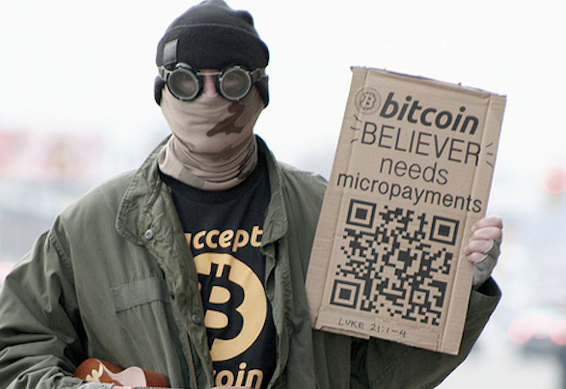CFPB: Bitcoin, Dogecoin And Other Virtual Currencies Like “Wild West,” Now Accepting Complaints

(ScottKS)
The Consumer Financial Protection Bureau issued an advisory [PDF] on Monday warning consumers of the potential risks — including unclear costs, volatile exchange rates, threats of hacking or scams, and unrecoverable funds — associated with the use of virtual currency products.
Additionally, the Bureau announced it would begin accepting complaints on virtual currency products and services through its consumer complaint database.
In recent years, the use of Bitcoin, Dogecoin and other virtual currencies has become popular, with everyone from professional sporting teams to hotel reservation sites accepting the payment, even though no overarching regulatory framework has been put in place to protect consumers.
(Still not sure what Bitcoin is? Take a look at our quick and helpful guide to virtual currency).
Unlike the use of debit and credit cards, which are governed by evolving regulations such as the Card Act, consumers who choose to experiment with virtual currencies are leaving themselves open to a number of risks, the CFPB says.
Potential risks consumers face include:
Volatile exchange rates and unclear costs – The exchange rate for Bitcoin and other virtual currencies fluctuate considerably. In 2013, the exchange rate for Bitcoin fell as much as 61% in one day, while the value in 2014 has dropped by as much as 80% in one day. Consumers should be prepared to weather the uncertain environment and consider what fees they may be required to pay to exchange the currency or use a digital wallet.
Hackers and scammers pose serious security threats – Hackers have been found to pose as legitimate virtual currency companies such as exchanges, intermediaries and traders in order to separate consumers from their funds.
Companies may not offer help or refunds for lost or stolen funds – Because some virtual currency companies don’t identify owners, provide phone numbers and addresses it can be difficult for consumers to receive any help or reprieve if something goes wrong with their funds.
“Virtual currencies may have potential benefits, but consumers need to be cautious and they need to be asking the right questions,” CFPB Director Richard Cordray says in a news release. “Virtual currencies are not backed by any government or central bank, and at this point consumers are stepping into the Wild West when they engage in the market.”
Although several government agencies like the Securities and Exchange Commission and the Internal Revenue Service aren’t quite ready to put their stamp of approval on the currency, some states have attempted to get in front of the virtual payment craze.
In June, California passed a law legalizing the alternative form of payment. About a month later, the New York Department of Financial Services issued a proposal that would regulate the virtual currency, providing a number of protections for consumers and businesses who use the form of payment.
CFPB Warns Consumers About Bitcoin [Consumer Financial Protection Bureau]
Want more consumer news? Visit our parent organization, Consumer Reports, for the latest on scams, recalls, and other consumer issues.

